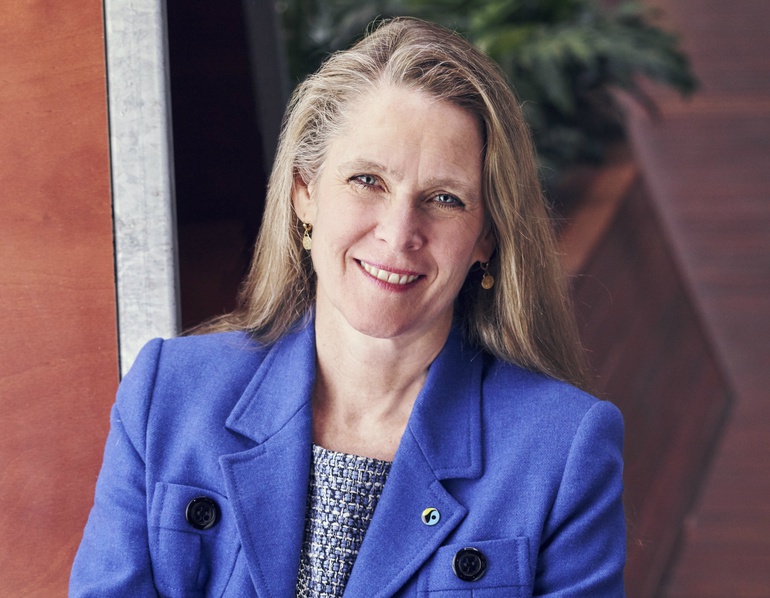Can sustainable real estate reshape the world?
29 Jul 2019
Molly Harriss Olson, CEO of Fairtrade Australia and New Zealand, invites members of GBCA to build on their Green Star impacts by considering the responsibility of business to broader ethical procurement commitments and supply chain transparency.
In the face of challenges posed by climate change, loss of biodiversity, rising inequality and mounting pressure on infrastructure, the members of GBCA are crucial decision-makers trying to build a better future. As custodians of Australia’s places and spaces, GBCA members are also well placed to take action on the pressing issues we must all face together.
Coffee cups, for example, are a central area of focus in the war on waste. It’s a huge problem, as an estimated one billion coffee cups end up in Australian landfill each year. But who has thought about the actual product in the cup?
In recent times, the price paid for Arabica coffee beans has plummeted to below production costs, jeopardising the livelihoods of 25 million coffee farming families worldwide.
Looking at this through the lens of sustainability, we are not paying prices to make coffee a break-even proposal for those who grow it. This is not sustainable. And it certainly isn’t fair.
And the coffee trade also faces new existential threats. Fairtrade’s report on the climate risks to coffee, A Brewing Storm, found that the total area suitable for growing coffee will be halved by 2050 if global warming goes unchecked.
Members of the GBCA will not shy away from meeting the challenge of taking action on this and other issues, despite their daunting scale.
You understand the principles behind the United Nations’ Sustainable Development Goals (SDGs), which emphasise that our world is deeply and inextricably interconnected – whether through our ecosystems, our supply chains, our economies, our information webs or our shared humanity.
As an industry you are beginning to look systemically – to understand the circular nature of the world we live in. And you understand the structures we need – transparency and verification – to achieve critical mass.
To name just one example of progress to that end beyond climate change mitigation, many companies are finally taking steps to tackle modern slavery in their supply chains, and I’ve been impressed by your industry’s work so far – which is absolutely ahead of the pack.
At Fairtrade, we often say if you haven’t found any issues in your supply chain, then you are not looking properly. And courageous leadership means not only taking a look but being prepared to address what you find.
You’re not alone if you feel overwhelmed by the scale of the challenge. I think we all do. But you have a mechanism that can help you. Just as you embraced Green Star to guide you in the design, delivery and operation of sustainable buildings, Fairtrade can help you to make ethical supply chain business decisions.
Fairtrade is one of the most widely recognised and trusted ethical marks in the world. We have more than 30 years of experience in alleviating poverty through audited and transparent supply chains that make trade fair. For the communities and people involved, the impact of Fairtrade is extraordinary and empowering.
So, I invite you to harness the help that Fairtrade can offer.
Whether it's Fairtrade coffee, tea, cocoa and sugar in your staff cafeteria or Fairtrade cotton for the concierge t-shirts, choose at least one small project to trial and test before moving on to bigger things.
It’s easy to think it will be too expensive to do the right thing. But the truth is that it generally turns out to be more profitable.
It takes brave leadership to take the first step. And that first step is always the hardest. But you are already on the journey – and you are much further ahead than many other industries. As members of the property industry, as space creators, you are uniquely positioned to lead Australia on this journey. And you already know that sustainable real estate can reshape the world.
Fairtrade invite you all to share with farmers and workers in developing countries the benefits of a sustainable world and measurable progress on the SDGs within your procurement. Together we can make even greater systemic change to build a better future.

Molly Harriss Olson is the Chief Executive Officer of Fairtrade Australia & New Zealand. Recognised for her leadership on sustainable business and development for more than three decades, Molly is a Life Fellow and a former board member (2006-2013) of the Green Building Building Council of Australia. She has convened and led numerous boards, business leadership and sustainability initiatives, including the World Economic Forum’s Global Leaders of Tomorrow. A powerful keynote speaker, Molly delivered the opening plenary of the World Economic Forum's 2000 meeting in Davos, chaired Swedish King Carl Gustaf's Business Leadership and the Environment Symposium in 1996, and has been named one of the Australian Financial Review's “100 Women of Influence”. Fairtrade Australia & New Zealand works directly with businesses, consumers and campaigners to make trade fair by securing a better deal for farmers and workers.